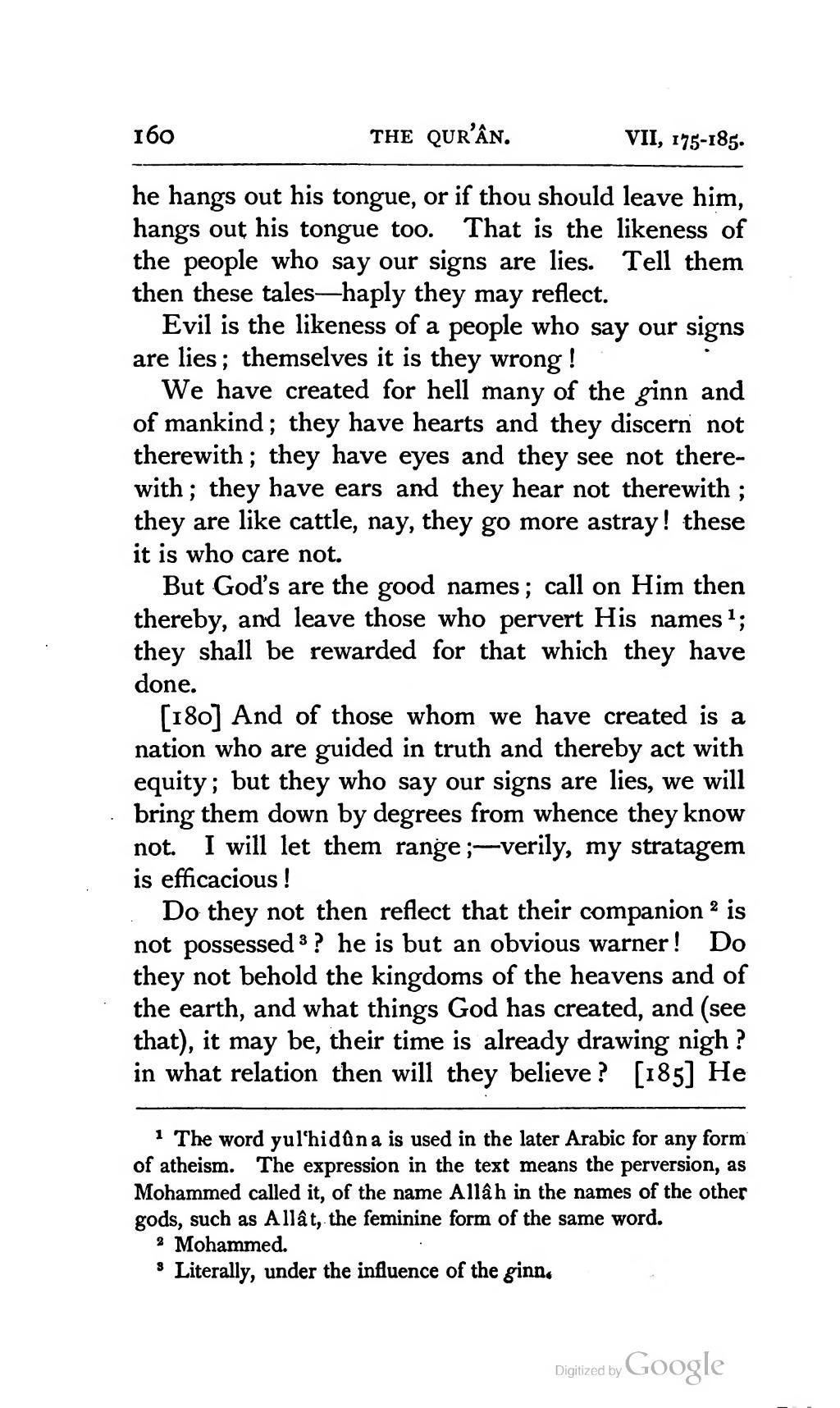he hangs out his tongue, or if thou should leave him, hangs out his tongue too. That is the likeness of the people who say our signs are lies. Tell them then these tales — haply they may reflect.
Evil is the likeness of a people who say our signs are lies; themselves it is they wrong!
We have created for hell many of the ginn and of mankind; they have hearts and they discern not therewith; they have eyes and they see not therewith; they have ears and they hear not therewith; they are like cattle, nay, they go more astray! these it is who care not.
But God’s are the good names; call on Him then thereby, and leave those who pervert His names[1]; they shall be rewarded for that which they have done.
180 And of those whom we have created is a nation who are guided in truth and thereby act with equity; but they who say our signs are lies, we will bring them down by degrees from whence they know not. I will let them range; — verily, my stratagem is efficacious!
Do they not then reflect that their companion[2] is not possessed[3]? he is but an obvious warner! Do they not behold the kingdoms of the heavens and of the earth, and what things God has created, and (see that), it may be, their time is already drawing nigh? in what relation then will they believe? 185 He
- ↑ The word yulʿhidûna is used in the later Arabic for any form of atheism. The expression in the text means the perversion, as Mohammed called it, of the name Allâh in the names of the other gods, such as Allât, the feminine form of the same word.
- ↑ Mohammed.
- ↑ Literally, under the influence of the ginn.
